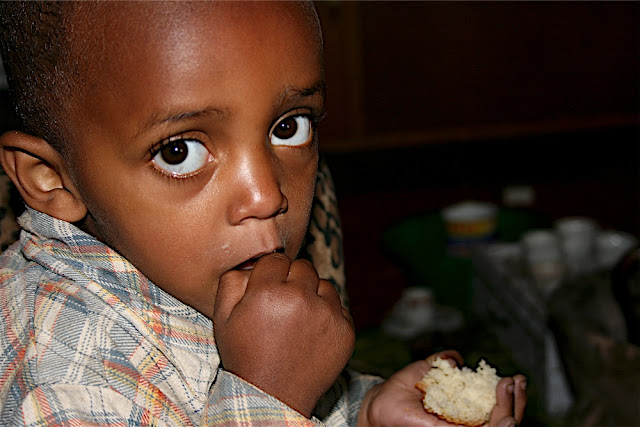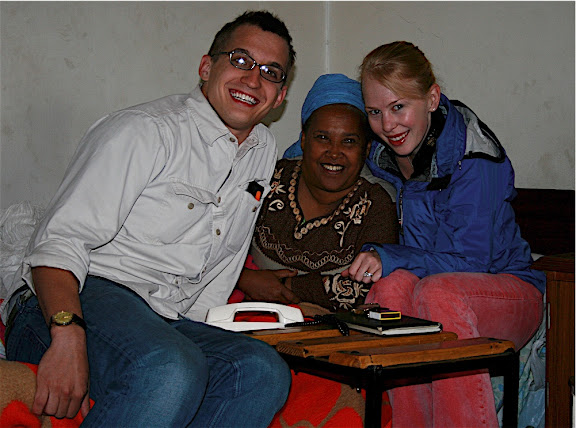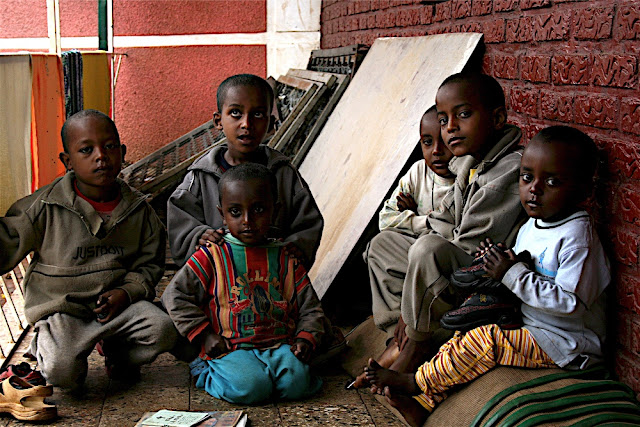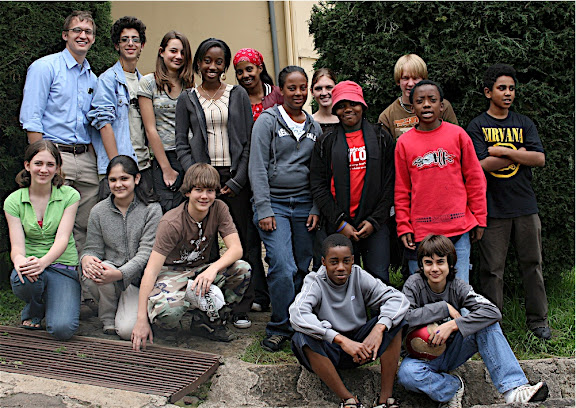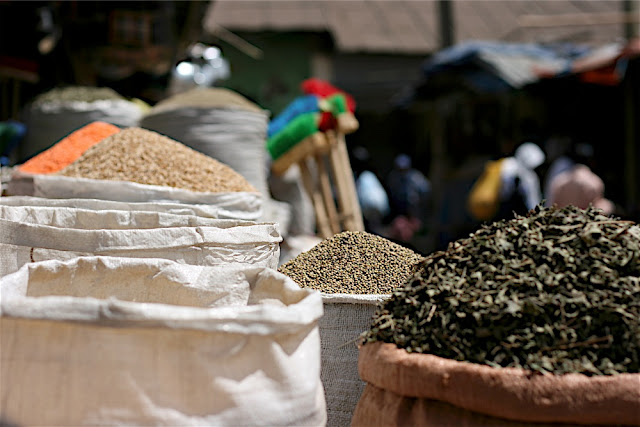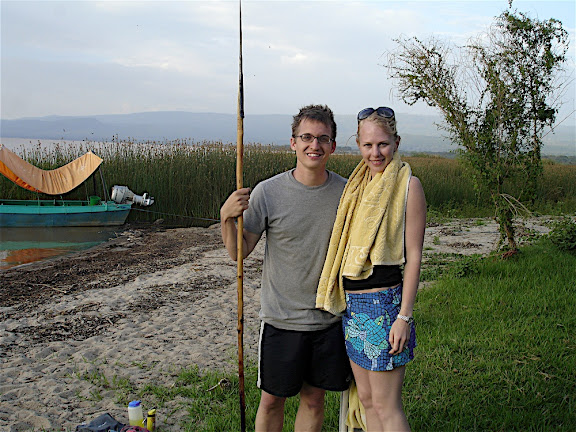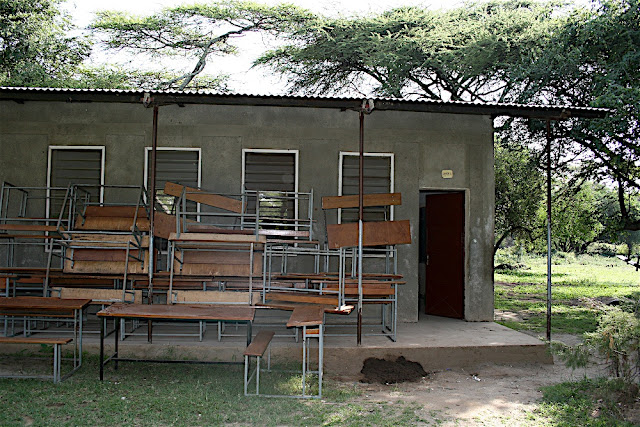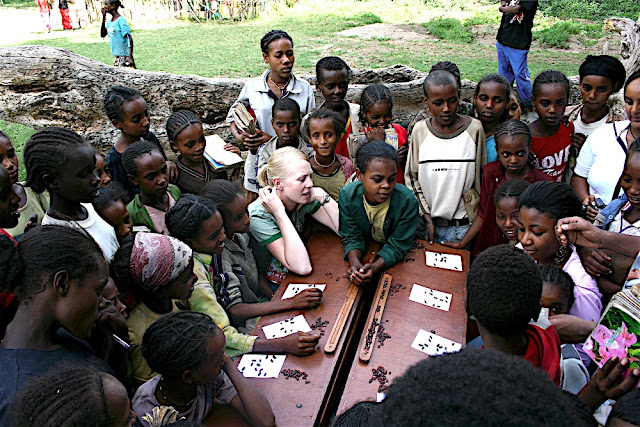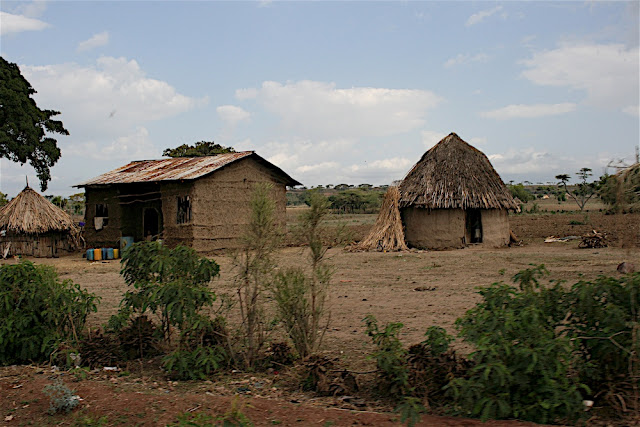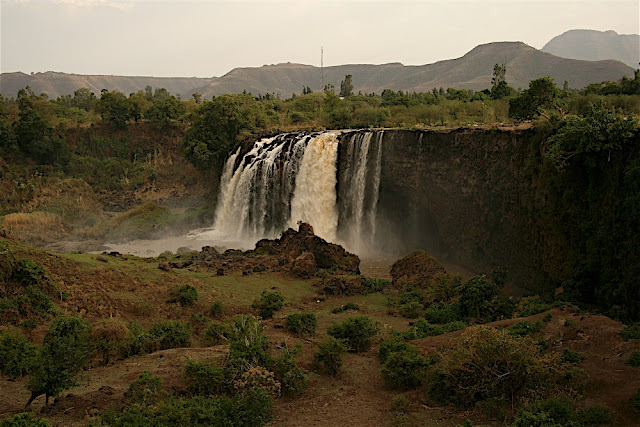
Since we spent more time on the road than we did awake in Bahir Dar, its only fitting to describe the journey in all its dusty detail. Escaping Addis Saturday morning, the highway is not only paved but
smooth. This lasts for almost two hours, but the superbly constructed pavement is quickly forgotten because (just like in Addis) it is mainly a pedestrian footpath and 80 kph automobiles are inconveniences. Before passing Debra Libanos, we pass at least 4 overturned, upside-down trucks. The truck's cargo still litters the roadside. Groups of people have lined up to watch the spectacle and some of them are selling portions of its contents.
From there, approaching the Blue Nile Gorge is an hour descent into dust and gravel. The road is unpaved, unforgiving, and makes both genders wish they had worn sports bras. The whole way down, bananas and pringles cans are rolling around the back and dust is pouring in the windows. At the bottom, we forget that all bridge photography is considered terrorist scheming--prompting confiscation or deletion. I stow my camera as the guard flags us down and the interrogation begins. I quickly confess that Jim is guilty and should be searched. Thus, he has to manually delete any jpeg with vague similarities to the vicinity.
After 10 hours of driving, we arrive in Bahir Dar. Its too dark to find our first choice hotel which is known for its 'personality'. Our second choice hotel makes up in cleanliness what it lacks in ambiance, or so the Lonely Planet tells us.
Sunday we pay 300ETB to see the island monasteries and the outlet of the Nile. I have the Sony FX1 wrapped up in B's raincoat and each time the rickety boat takes a surge I wonder how I am going to tread water and keep the camera above my head. Before long, we pass a hippo swimming in the water and I wish I could trade my breakfast for some Dramamine.
The monasteries are several centuries old and have communion services twice a year. Each one has a 20ETB entrance fee. If you've seen one,...
The Blue Nile Falls are instantly the highlight. Even though most of the water has been diverted to a hydroelectric dam, its breathtaking. Of course we pay for a guide, mainly to fend off children selling local fare (which might be mistaken for folk art) and to tell the little guy playing the flute to hold still for the faranj with the video camera.
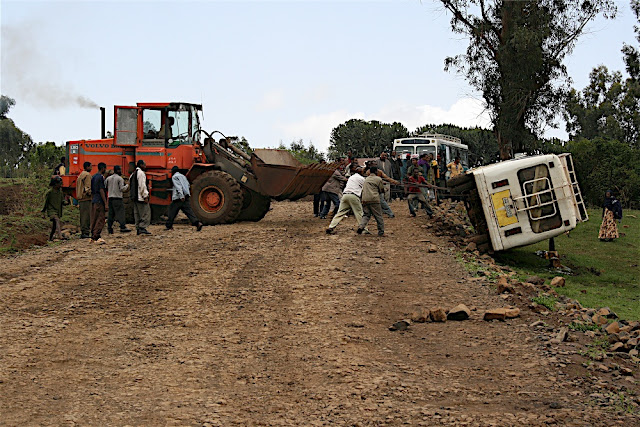
The drive back on Monday is the same thing all over again except when instead of passing cargo trucks, we pass a passenger bus which has slipped off the highway over the mountainside. It dangles almost vertical on the steep mountainside, crushed by its fall.
Right about then, I decide I wont be taking public trans across Ethiopia, even if an all day journey is only 50ETB.
DC
 These may be the centerpieces of my Amharic, as I try to use these on a regular basis. I hope to retain them as a staple of my vocabulary.
These may be the centerpieces of my Amharic, as I try to use these on a regular basis. I hope to retain them as a staple of my vocabulary. 

